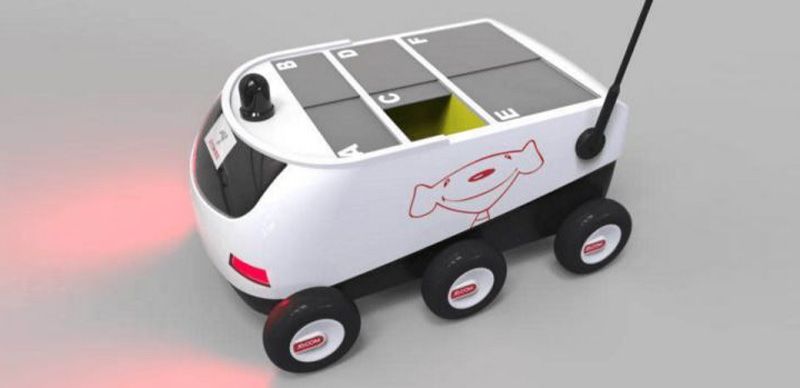
Robohub.org
China’s e-commerce dynamo JD makes deliveries via mobile robots

China’s second-biggest e-commerce company, JD.com (Alibaba is first), is testing mobile robots to make deliveries to its customers, and imagining a future with fully unmanned logistics systems.
Story idea and images courtesy of RoboticsToday.com.au.
On the last day of a two-week-long shopping bonanza that recorded sales of around $13 billion, some deliveries were made using mobile robots designed by JD. It’s the first time that the company has used delivery robots in the field. The bots delivered packages to multiple Beijing university campuses such as Tsinghua University and Renmin University.
JD has been testing delivery robots since November last year. At that time, the cost of a single robot was almost $88,000.
They have been working on lowering the cost and increasing the capabilities since then. The white, four-wheeled UGVs can carry five packages at once and travel 13 miles on a charge. They can climb up a 25° incline and find the shortest route from warehouse to destination.
Once it reaches its destination, the robot sends a text message to notify the recipient of the delivery. Users can accept the delivery through face-recognition technology or by using a code.
The UGVs now cost $7,300 per robotic unit which JD figures can reduce delivery costs from less than $1 for a human delivery to about 20 cents for a robot delivery.
JD is also testing the world’s largest drone-delivery network, including flying drones carrying products weighing as much as 2,000 pounds.
“Our logistics systems can be unmanned and 100% automated in 5 to 8 years,” said Liu Qiangdong, JD’s chairman.
tags: c-Consumer-Household



